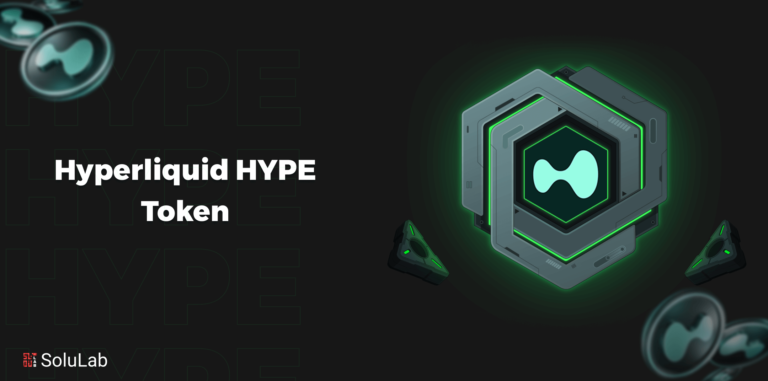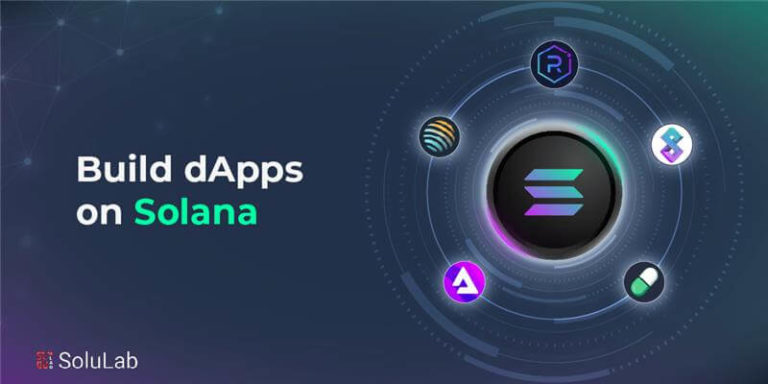The property market is rapidly evolving, and it is critical to keep up with all of the latest developments. The blockchain and cryptocurrency world is steadily transforming how many industries operate, including the real estate business. One such possibility is the usage of non-fungible tokens (NFTs).
Most people think that trading in real estate can only be done while they’re playing Monopoly. However, technology may eventually allow anybody with a few thousand dollars to own a piece of a historic structure.
Regular people might engage in real estate transactions that are too cumbersome in the analogue world by employing online technology from the cryptocurrency sector, such as tokens and blockchains.
The market for digital files marketed as “non-fungible tokens,” or NFTs, has surged this year, most notably when a Beeple artwork sold for $69.3 million at a Christie’s online auction in March. However, real estate, architecture, and design are thriving in the virtual economy.
NFTs for fractional ownership of real estate
However, NFTs are most often employed in the digital world and do not imply that they can only be used for digital assets. NFTs may also be utilized to represent tangible things or real estate ownership. Fractional ownership is one example of this. By releasing tokens on the blockchain, homeowners might sell a portion of their property to a vast number of small investors. Investors might retain these tokens and earn a rental income; a profit split on capital appreciation when they sell them, or both.
This might also enable consumers to acquire and sell fractional ownership in rental properties in a liquid market without the need for a middleman. This would allow many more individuals to enter the world of property investment and provide better choices for those who need to release value without borrowing or relocating.
NFT Real Estate Online Advances NFT real estate markets such as Unirealchain and LABS Group provide chances with a level playing field for all users. Anyone who joins may find great discounts on a house, and it is no more such a closed club of in-the-know realtors. You may purchase and sell real estate on these sites.
Investors may purchase as many as they wish, and each one represents a portion of the represented property. Through their liquidity pools, you may also invest in fractional shares. Without getting too technical, this implies that low-capital investors may combine their funds or crowdfund to contribute to the purchase of a high-priced property. Although crowdfunding for real estate investment already exists, blockchain crowdfunding is a new and unique concept.
There are several advantages to using NFT, including publicly accessible information, records of immutable transactions, decentralized management, total transparency, and traceability. REITs pioneered the concept of fractional investment, but investing via NFTs brought about unprecedented speed and efficiency. Smart contracts are used to automate escrow transactions. With blockchain, there are no complications when filling out the paperwork needed by multiple countries. The blockchain ledger is an immutable record of transactions. As a result, human error is removed.
Registration of NFT Real Estate Land
In recent years, various governments have turned to blockchain technology for various land administration services such as land registration, titling, recordation, and information management. The Republic of Georgia is already employing blockchain technology to prevent theft and fraud in leases, sales, and mortgages.
Since 2016, Ghana has demonstrated an interest in blockchain technology. According to Reuters, “In Ghana, more than 80% of landowners lack title 60 years after independence, according to the country’s land commission.” Daniel Bloch is the co-Founder of BenBen, and he’s utilizing BigchainDB as his preferred blockchain to establish a land register in Ghana. “BigchainDB enables us to handle land titles and transactions the manner we want, something no other blockchain can achieve,” he says.
Lantmäteriet is a Swedish government agency that maps the nation and offers real estate information. They also manage related registrations and give information on Swedish real estate and geography. They’ve already managed to map land and property on a modest scale using the ChromaWay blockchain. They are now experimenting with blockchain to see how much time they can save when processing a contract from signature to selling. Because this procedure generally takes months, they hope that the trial will be a success, allowing them to scale the technology throughout the nation.
Purchases of Digital Real Estate NFT
NFTs are used to acquire virtual real estate in-game. However, how feasible are actual NFT real estate purchases?
Over $2 billion of commercial real estate tokenized by RedSwan, representing New York, California, and Texas assets. A total of twelve properties are featured, including top-tier mid-rise and high-rise flats. This is excellent news for the NFT real estate business, particularly for retail investors who do not have $100 million to spend for Class A buildings, as substantial real estate firms have. “It provides them alternatives they never had before,” RedSwan CEO Ed Nwokedi tweeted. They may spend $20,000 and acquire a portion of a high-rise structure.”
A few months ago, TechCrunch founder Michael Arrington sold his condominium in Ukraine through NFT for more than $93 thousand. Devon Bernard purchased this flat solely with the cryptocurrency Ether. The announcement made history since it was the world’s first real estate transaction with NFTs. It’s excellent news, given that California real estate broker Shane Dulgeroff had placed a property for sale via an NFT only a month before but failed to sell it. He expects that in the future, the gap between real estate and NFTs will be overcome. “The offering requires a buyer who knows cryptocurrencies and NFTs, as well as the real estate market and maintaining a rental property,” he says. Devon Bernard is one example of someone who has crossed that divide.
NFT Real Estate’s Key Players
Propy
Propy intends to use the Ethereum blockchain to transform real estate transactions. They are now striving to replicate land registration data by recording real estate transactions on their website. Their goal is for authorities to use their platform as the official ledger for everything real estate.
SafeWire
SafeWire, based in Ohio, focuses on tackling wire fraud issues that agents, clients, and real estate organizations have due to hackers. They use blockchain to secure crucial transactions.
RealT
RealT, situated in Florida, allows for fractional real estate investing through NFTs. The Ethereum blockchain powers its token-based network. Digitized properties may be purchased and sold here.
The adoption of NFTs in the real estate business is sluggish, but it seems to be unavoidable. Blockchain technology allows for quick and secure document processing. Governments, organizations, and ordinary investors turn to blockchain technology to improve their lives and enterprises. The way records are stored, and transactions are completed in the real estate market has to be overhauled.
Is the Future of Real Estate in Non-Fungible Transactions (NFTs)?
NFTs, or non-fungible tokens, are blockchain-based digital tokens that may be exchanged like bitcoin but represent ownership of a particular digital asset. Since an artwork by digital artist Beeple sold for $69 million at an online auction, NFTs have been in the spotlight. More and more digital artists, photographers, and video makers are joining the art world’s trend of selling original works of art online to consumers interested in owning an original piece of work. It’s safe to say that cryptocurrency is now considered popular (Elon Musk just revealed that consumers can now buy Teslas with Bitcoin), with over 10,000 distinct cryptocurrencies openly traded and Bitcoin ATMs springing up in Florida. The issue now is, “Where do we proceed from here?”
The critical word in that query is “where,” since real estate is the newest marketplace to join the realm of NFTs. It’s worth noting that using blockchain technology to acquire real estate is a well-established practise (Bee Mortgage App, for example, is a mobile firm that uses blockchain technology in the real estate market). However, NFTs provide something distinct than, say, Bitcoin: ownership when it comes to digital assets. Tokenization of virtual environments may be beneficial to real estate brokers, advertising, and artists alike.
According to CEO Hrish Lotlikar, SuperWorld, an augmented reality virtual environment, has already sold “thousands of homes” by 2021. People may, in effect, own the digital property containing the Eiffel Tower, the Golden Gate Bridge, or a portion of the Great Wall of China by spatially mapping the whole planet into 64 billion equally sized plots.
Aside from the boasting rights of digitally owning one of Giza’s Great Pyramids, the real issue is why to acquire virtual property that you can’t live in.
The Experience
Enter the Mars House, a “digital Zen garden” designed for the metaverse or shared virtual environment. Incorporating virtual reality glasses may allow for a more immersive experience and semi-permanence in these shared metaverses. In the same way, open-world, multiplayer video games have evolved into digital gathering places. Owning a digital home designed just for you by digital architects may be an option for persons interested in owning property as an investment and locating an aesthetically pleasing piece of the earth for themselves. These community metaverses serve as virtual marketplaces where users may buy, trade, and sell items using avatars the same way they would in the real world.
The Environment
Everything, as we’ve seen with works of art and, more recently, worldwide monuments, can be “tokenized.” The value of virtual properties will grow as more people get interested in this market. Website domain names are an example of digital real estate. The idea of virtual properties following a similar paradigm might create a fascinating ecosystem in which real estate assets are owned and traded globally.
Aside from that, there is little question that real-world uses of NFTs in property ownership are on the horizon. Tokenizing real estate property might make transactions less expensive and time-consuming than they are present. An NFT that has been “minted” with legal papers, disclosures, and even picture files becomes evidence of ownership. That NFT is then listed on an NFT marketplace, where interested buyers may bid on the property paid for in cryptocurrency. The NFT is subsequently sent to the buyer’s digital wallet, completing the ownership transfer.
While blockchain technology is currently in use in the real estate industry, the potential participation of NFTs adds an intriguing new layer to property ownership. This buzzing cryptocurrency might be the wave of the future, bridging the gap between an unlimited virtual environment that is constantly being explored in new ways and real-world applications.
Conclusion
While NFTs seem promising for the future, we still have a long way to go before they become commonplace. It’s not a question of whether or not this technology will be used; we already see NFTs in the real estate sector. It’s only a question of when.




